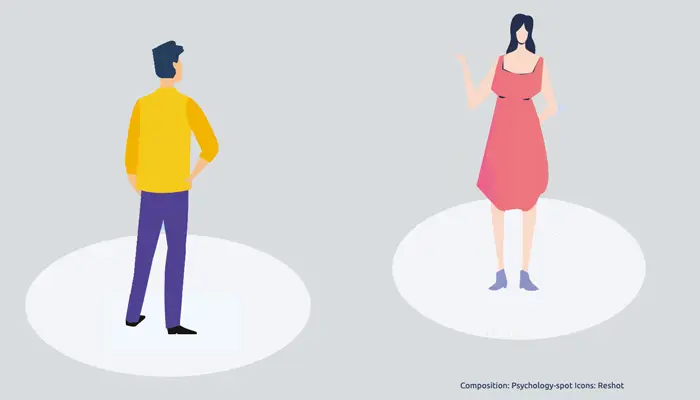
In recent years, apologies have been prostituted. They have become so commonplace that have been emptied of meaning and thus have lost their healing power. Embedded in a society that is offended by everything, apologies have become a kind of “white flag” that is raised when it is considered necessary to avoid greater evils – usually to oneself.
Asking for forgiveness has become an empty act to resort, from corrupt politicians to callous celebrities, to whitewash their image. A bitter drink that they must swallow, a short Via Crucis that they must undertake so that everything can be the same again. Unfortunately, that attitude also extends to society, even permeating our closest relationships.
Although perhaps worst of all, it is taken for granted that behind the apology must come forgiveness. In the popular imagination, has settled the idea that once the offender apologizes, he gets rid of all responsibility and washes away his sins. In this way, seeking forgiveness becomes in many cases a second act of violence against the victim.
While offenders washes their hands of it, the unforgiving victim may be seen as unsympathetic and unforgiving. And there will be no lack of veiled pressure to “turn the page” and forgive since, after all, the offender has apologized. However, apologies and forgiveness don’t necessarily have to go hand in hand. Neither in the public nor in the private sphere.
In the realm of apology no-apology
A study by psychologists at the London Business School found that apologizing isn’t as effective as we think and that we often overestimate the value of an apology. In fact, apologizing is not enough, especially when it does not come from sincere regret and deep reflection on the mistake made. And normally that lack of sincerity and absence of remorse are intuited.
Many apologies contain nothing that smacks of an apology. “I apologize if anyone was offended” is the emblem of an apology non-apology, becoming another way of saying: “I’m sorry, but you’re so sensitive.”
“I’m sorry that my words have been misinterpreted” is another apology attempt blocked by an ego too big to recognize the mistake made, even if it is only on a communicative level.
This type of apology does not show contrition for the error or concern for the damage or even reflection on the consequences of the act. In fact, sometimes the only reflection that some offenders make is about the price they have to pay if they do not apologize.
Apologizing is not making a clean slate
Let’s start from an assumption: forgiving is beneficial. Not only because it can help redeem the person who was wrong, but because it frees the victim from the weight of emotions such as resentment, anger, or rancor.
Not forgiving condemns us to a state of internal tension that ends up affecting our physical and mental health. Forgiving does us good, not because the other person deserves forgiveness, but because we deserve to be freed from that burden. But intellectual forgiveness is of little use. Forgiving is an intimate act that must come from the heart, like the authentic apology. That means forgiveness cannot be socially imposed.
And yet there are still people who take it for granted that apologies must be followed by forgiveness. These people do not hesitate to express their outrage at the victims’ inability to forgive and admit to incomplete, exculpatory and, frankly, arrogant apologies. Many of these people end up empathizing more with the offender than with their victim.
“Forgive him, poor guy”, “He’s already apologized, please forgive him” or “He’s too young/old/confused, don’t hold a grudge against him”… With these phrases, one empathizes with the offender, putting the victim between a rock and a hard place , almost forcing him to let go of something he still can’t accept, much less forgive.
In fact, sometimes undeserved forgiveness for an incomplete apology adds an additional layer of wrong on top of the original damage. It puts the stamp of permissiveness on actions that deserve clear revulsion, both personally and socially.
It must be clear that apologizing does not exempt persons from their responsibility or from the duty to repair the damage caused. Asking for forgiveness is not making a clean slate, pretending that nothing has happened because “The only correct actions are those that demand no explanation and no apology”, as Red Auerbach said. Neither apology nor forgiveness is a blank check to the bearer.
The ingredients that cannot be missing in a sincere apology
For an apology to have a chance of being accepted, saying “I’m sorry” is not enough. In Jewish tradition, for example, the Yom Kippur rule demands that the offender offer his sincere apology three times if he wishes to be forgiven. In fact, the Day of Atonement is the holiest of the Jewish year and is used to express sincere, heartfelt repentance.
In their culture, hurting another person without apologizing is tantamount to doubling the offense, adding to cruelty the sin of callousness. For this reason, they know that in order to apologize it is necessary to confess the mistake, repent of what was done wrong, and resolve not to behave that way again.
Psychology proves them right. Above all, an apology must be based on mutual consent, since many times it is taken for granted that the other person wants to hear our repentance, when often is not prepared for it. In such cases, “forcing” him to listen to the apology may be a second act of violence.
A study conducted at Ohio State University revealed that the perfect apology must have three ingredients. First, it must be an expression of genuine regret, expressing how we feel when we realize what we did. It must also imply acknowledgment of responsibility and the damage caused to the other, as well as an offer to repair the damage, whether material or symbolic – or at least the commitment not to do it again.
In fact, asking for forgiveness is the last step when we apologize. Maybe the person we hurt isn’t ready to forgive. It’s his right. And that’s good. Far from pressing him for forgiveness, it’s best to be understanding and ask if there’s anything else we can do to make him feel better so that he can forgive us.
For an apology to be valid, it has to convey power to the aggrieved person. So he can forgive. If the person who committed the offense maintains an arrogant and superior attitude, it is likely that the victim will not forgive him.
In fact, a genuine apology should be a moment of special connection where souls touch each other in their extreme vulnerability while baring their emotions. The goal of an apology is to repair the damage done to the relationship and restore trust, not to get away with it. We should remember this the next time we try to justify the offender or pressure his victim to forgive him.
Sources:
Lewicki, R. J. et. Al. (2016) An Exploration of the Structure of Effective Apologies. Negotiation and Conflict Management Research; 9(2): 177-196.
MacLachlan, A. (2015) “Trust Me, I’m Sorry”. The Monist; 98(4): 441-456.
Cels, S. (2015) Interpreting Political Apologies: The Neglected Role of Performance. Political Psychology; 36(3): 351-360.
Lewis, J. et. Al. (2015) Apologies in Close Relationships: A Review of Theory and Research. Journal of Family Theory & Review; 7(1): 10.1111.
Worthington, E. L. & Scherer, M. (2004) Forgiveness is an emotion focused coping strategy that can reduce health risks and promote health resilience: theory, review, and hypotheses. Psychology & Health; 19(3): 385-405.
De Cremer, D. et. Al. (2011) How Important Is an Apology to You? Forecasting Errors in Evaluating the Value of Apologies. Psychological Science; 22(1): 45-48.




Leave a Reply